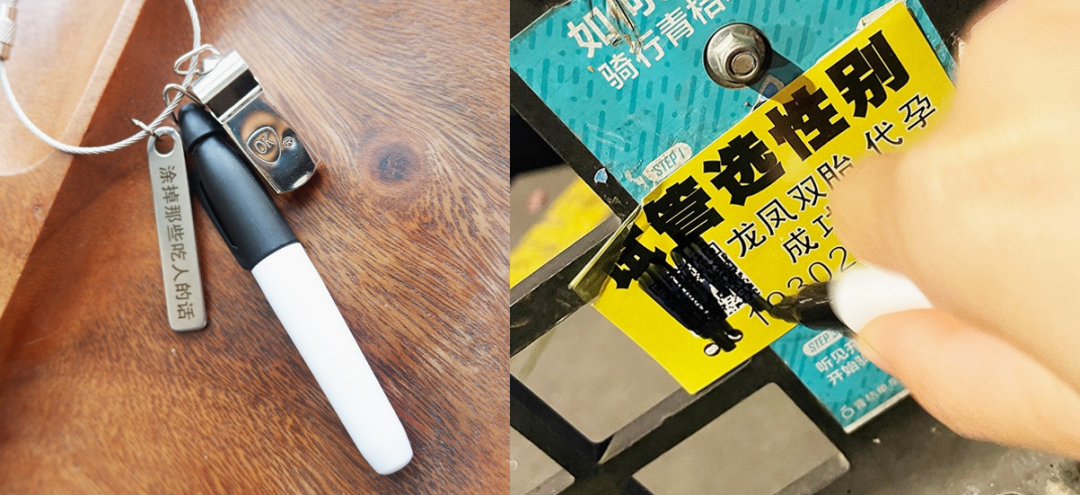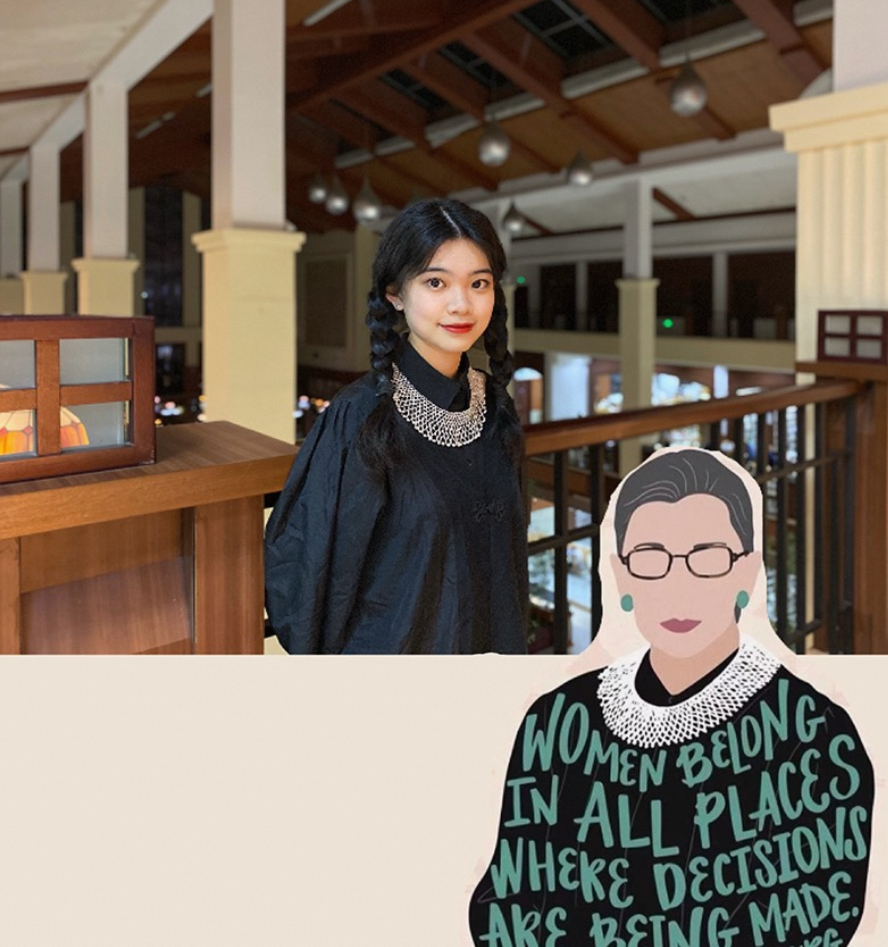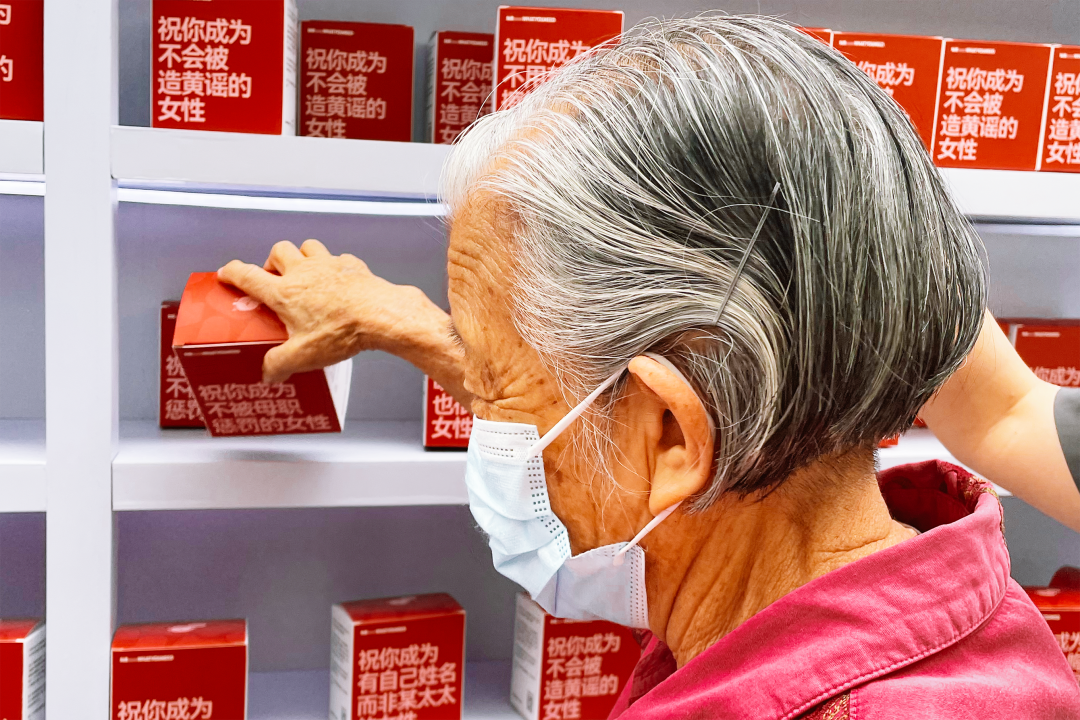This year’s United Nations theme for March 8 International Women’s Day (IWD) is “DigitALL: Innovation and technology for gender equality,” highlighting gender gaps in STEM education and careers, as well as the online harassment that many women face. In China, people marked the holiday with a variety of thought-provoking and creative events centered on women’s lives, both online and off. In this second part of CDT’s series on International Women’s Day 2023, we present a selection of some of the best Women’s Day essays and articles, selected by CDT Chinese editors from across the internet and social media.
Reflecting this year’s IWD theme, a number of articles discussed cyberbullying and the online harassment of women. The issue has attracted a flood of attention due to the recent death of Zheng Linghua (郑灵华), a 23-year-old woman who committed suicide after suffering months of vitriolic online attacks for simply dyeing her hair pink and posting photos of herself on social media. Zheng’s tragic case has galvanized women all across China, with some dyeing their hair pink to draw attention to the online abuse of women, and others being inspired to speak out about their own experiences.
Writing for WeChat account 极昼工作室 (Jizhou Gongzuoshi, Perpetual Light Studio), Li Xiaofang (李晓芳) penned “These Women Were Lucky to ‘Survive’ Cyberbullying,” a moving longform article in which several women describe their personal experiences with cyberbullying and online abuse. Vlogger “Ruby” (all of the names are pseudonyms), who has burn scars from a childhood accident, was attacked by trolls for her appearance. “Zhu Zhu,” an Oxford-educated 28-year-old, was targeted for being too pretty, accomplished, and wealthy. “Xiao Lian” received DMs urging her to kill herself after she revealed online that she had been abused by her father and had later been diagnosed with severe depression. “Zhang Jun” stood up for her rights and attempted to sue bloggers who were using her picture for concocted sex stories, but to little avail. These are but some of the stories of women who survived cyber-abuse—others were not so “lucky.”
According to a 2015 report by the United Nations Broadband Commission Working Group on Broadband and Gender, women are 27 times more likely than men to be harassed online. In a media interview, a lawyer representing the Hangzhou woman who was the target of rumors saying that she had “cheated” with a delivery driver mentioned that she had handled or consulted on over 20 cases of cyber-violence, and that the ratio of male to female victims was 1:9.
[…] At the age of 13, “Beifang” suffered near-daily malicious personal attacks simply because she had violated some content creation rules in a certain fan-fiction group. At the time, she didn’t even understand what “cyber-violence” meant. She just felt so angry that she subconsciously fought back with malicious speech. “I figured that if they were going to lob filthy curses at me, then I’d retaliate with even filthier curses.” This approach made her the target of even more violent cyberbullying attacks.
[…] Vlogger “Ruby” said that when she encountered cyberbullying, what she felt most was a sense of powerlessness. She had no idea who was attacking her, nor any way of catching them. “It’s like I accidentally fell into a cesspit, and was surrounded by people throwing stones at me. I had no way to protect myself, and I felt so very helpless, so powerless.” […] More than a year after the incident, every time the subject of cyberbullying is brought up, Ruby still hyperventilates and trembles uncontrollably. [Chinese]
Two other essays made reference to a more recent incident of cyberbullying: a female high school student from Sangzhi County, Hunan Province, was ridiculed and harassed online after a video of her giving an impassioned speech about the college entrance exam went viral. School administrators classified it as a serious incident of cyberbullying, and provided psychological counseling for the girl and her classmates. In “Cyberviolence is Cyberviolence,” prolific essayist Wei Zhou (维舟) reminded readers that it is important to be vigilant about all forms of online violence and bullying, and to avoid blaming the victim, even if their point of view seems ripe for mockery. An essay by Guan Buyu (关不羽) makes a similar point, noting that while robust online discourse is important, as cyberbullying becomes more widespread, we need to develop new ways of recognizing and minimizing all forms of online violence.
One of the ways in which International Women’s Day is celebrated in China is by shopping online. An article by Yi Wanyu (琬玉), “Some People Find This Taobao Shop ‘Scary,’ But Over 100,000 Have Found Allies Here,” describes an online shop dedicated to selling merchandise with positive feminist messages. The merchandise on offer ranges from t-shirts that read “This is what a feminist looks like,” to pins emblazoned with the phrase “Girls help girls,” to a necklace modeled on the late U.S. Supreme Court Justice Ruth Bader Ginsburg’s famed lace collars. Even more important, according to the shop’s founder, is that visitors to the shop can find common cause and mutual support:
Since its establishment in 2014, every product in the Empowerment Shop (有力商店, You Li Shangdian) has had some relevance to “feminism,” but due to the fear of cyber-violence, this critical word is not included in the product links or descriptions.
To avoid trouble, its founder doesn’t do any promotion for the shop. It is like a hidden underground fortress, attracting a community of people who share the same beliefs. In the past ten years, it has garnered 100,000 fans.
[… From the founder’s statement:] “In 2014, we opened a Taobao store, and this T-shirt [with the message ‘This is what a feminist looks like’] became the first product in our store. Afterwards, we added other small items, such as pretty uterus-shaped brooches, [and] glow-in-the-dark messenger bags [….] At present, our best-selling product is a key chain with a marker pen and a rape whistle.” [Chinese]

Left: A keychain with a rape whistle, a small black marker pen, and a tag reading “Erase oppressive language.”
Right: An example of someone using the black marker to obscure a QR code on a yellow sticker advertising “test-tube gender selection.” [The advertisement is worded in such a way as to suggest that the main purpose of the prenatal test is for sex-selective abortion.]

Just as products featuring positive feminist messages are subject to undue censorship online, so are images of women’s bodies. For this reason, some online lingerie-sellers in mainland China have pivoted to using men to model women’s undergarments in an effort to escape the wrath of censors. The story was reported by CNN’s Chris Lau and Kathleen Magramo:
Several businesses specializing in selling lingerie through livestreaming have had their sessions cut short after they featured a female model and their brush with internet censorship came to light in January.
Hence the use of men instead.
On one of the sales channels, a man is seen dressed in black lingerie, standing next to a mannequin showing a similar outfit, in what appears to be a screenshot of a livestream broadcast on Alibaba (BABA)’s Taobao Live, a streaming platform for the e-commerce giant.
In another image, a different male model put on a pink slip dress and silky shawl, accessorized with cat ear headbands. [Source]
This outcome is especially ironic in view of official efforts such as a 2021 Ministry of Education notice titled “Proposal to Prevent the Feminization of Male Adolescents” and a call by regulators the same year to “resolutely put an end to sissy men and other abnormal esthetics” on Chinese TV.
Commemorations of Women’s Day in China occurred in person, as well as online. One enterprising feminist collective launched a streetside pop-up featuring sanitary napkins in red-and-white boxes emblazoned with inspiring blessings for women. Among the blessings: “May you become a woman who is willing to support the sisters around her,” “May you become a woman who prioritizes your own feelings,” “May you be treated with sincerity,” “May you not be punished by motherhood,” and “May you consider divorce an option.” In an article published on WeChat account 我要WhatYouNeed (Wo Yao WhatYouNeed, “I Want WhatYouNeed”), author Mi Hua (米花) describes some of the reactions to this eye-catching celebration of women’s lives:
For Women’s Day, we bought a huge billboard and put a thousand blessings from other women on it. We want to give a message to every woman who passes this intersection, and to let them know that on this day, they are visible, worthy of attention, and blessed.
[…] An older woman from Chongqing wanted to choose a blessing for her daughter, but she was worried that her husband would get angry. “He has a bad temper,” she said.
I covered her from his view as she squeezed into the crowd. After she had made her choice, she stuffed the box into the bag she was carrying to conceal it. She planned to secretly give it to her daughter later.
[…] “Choose one for your mom,” I said to a daughter who had brought her mother with her.
She took a long time making her choice, and eventually selected this one: “May you become a woman with a name of your own instead of simply ‘someone’s wife.’” I watched them holding the box together, as the daughter explained the meaning of the blessing to her mother in Cantonese.
[…] A middle-aged mother came up and asked me which blessing would be appropriate to give to her daughter, who was in high school. Before I could answer, she chose this one: “May you become a woman whose ability will not be questioned because of your gender.” [Chinese]
A March 8 International Women’s Day streetside pop-up features eye-catching red-and-white boxes of sanitary products emblazoned with various Women’s Day “blessings.”
White billboard at top left: “May women’s needs no longer be invisible.”
Red billboard at top right: “Women’s Day in Action,” and “I need WHAT YOU NEED”

A woman selects a box that reads, “May you not be punished by motherhood.” Other boxes feature the blessings “May you become a woman with a name of your own instead of simply ‘someone’s wife,’” and “May you not become the subject of sexualized rumors.”
A woman takes a photo of a box that reads, “May you be respected when you SAY NO.”






